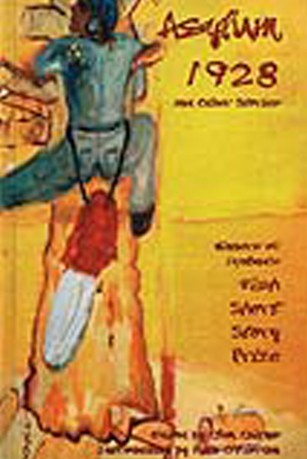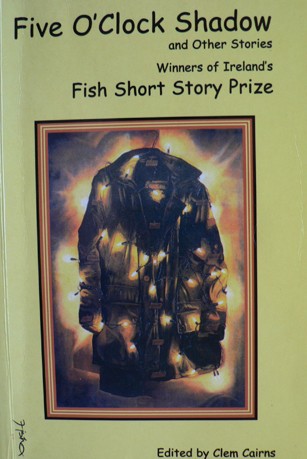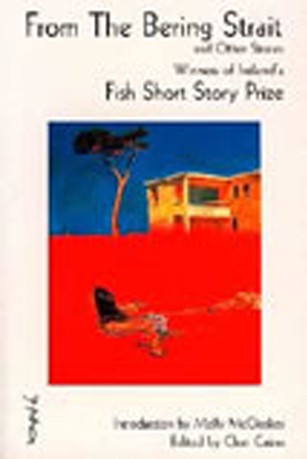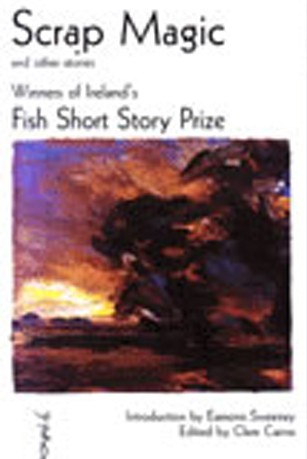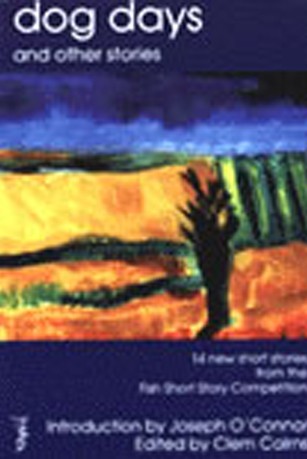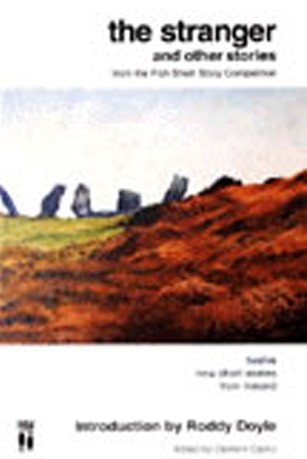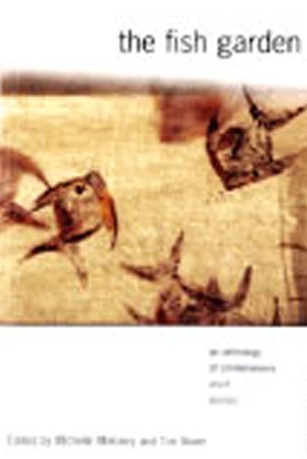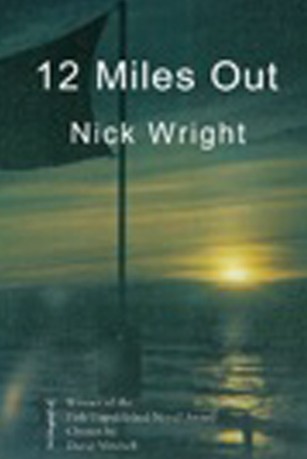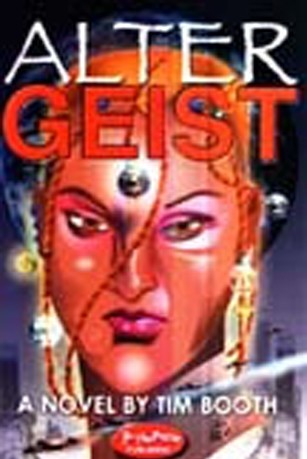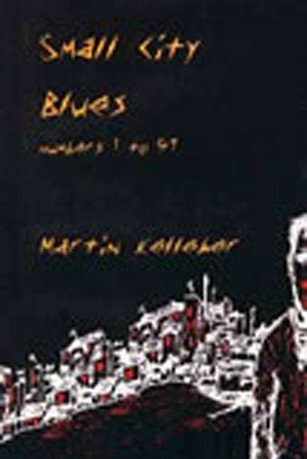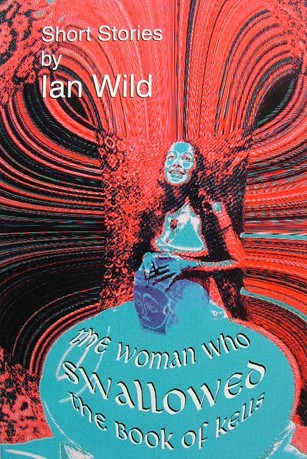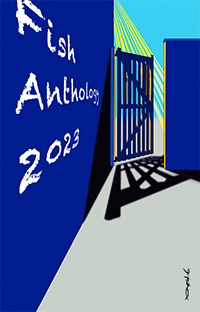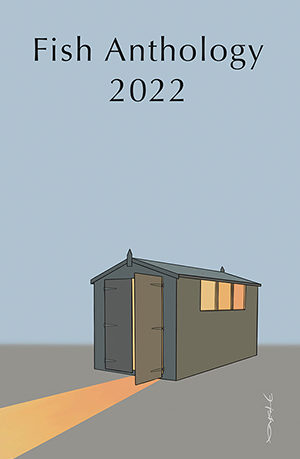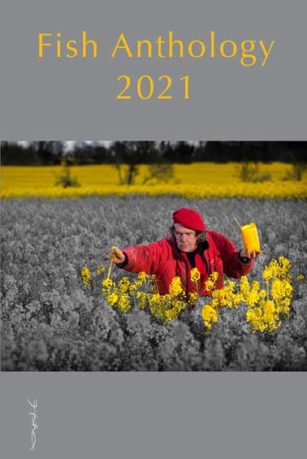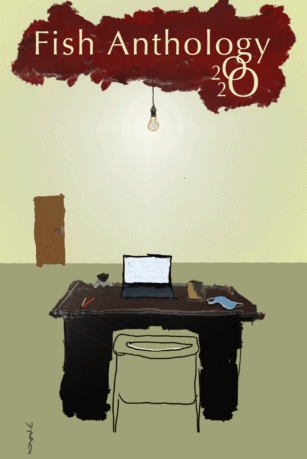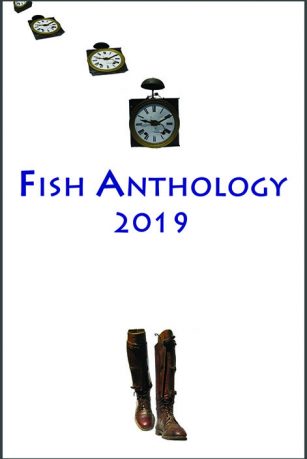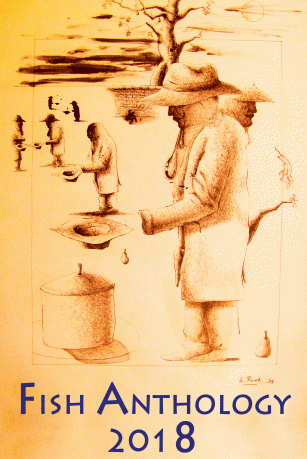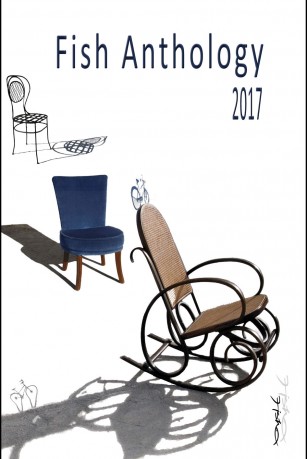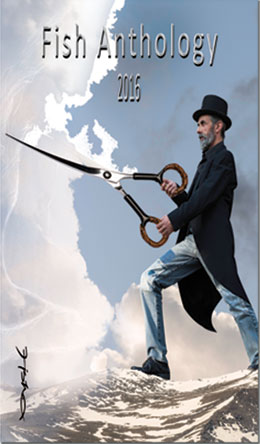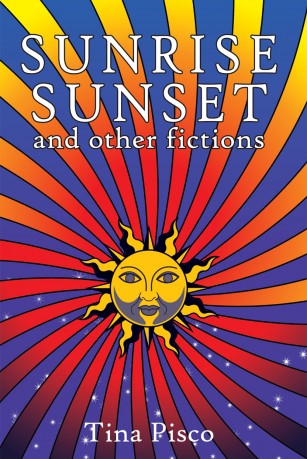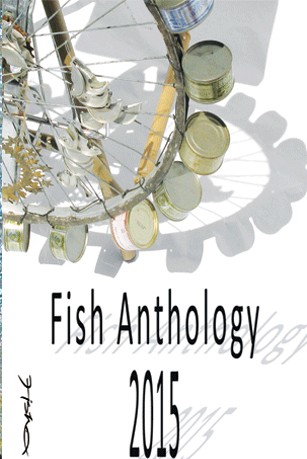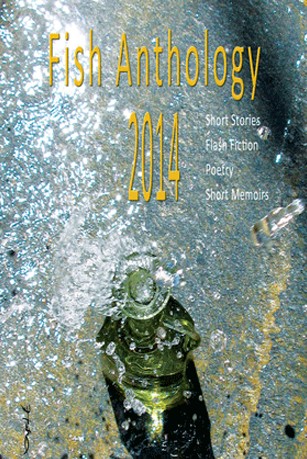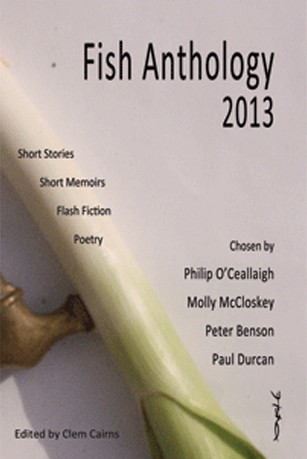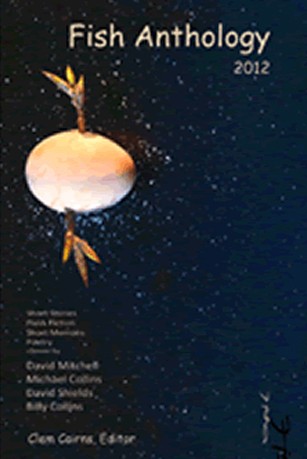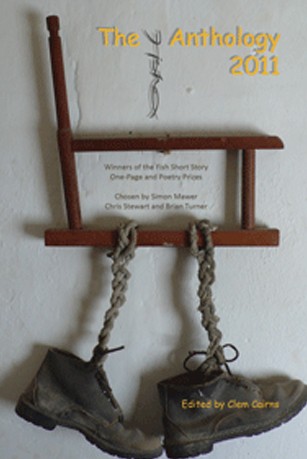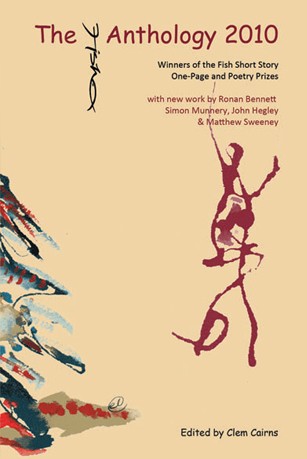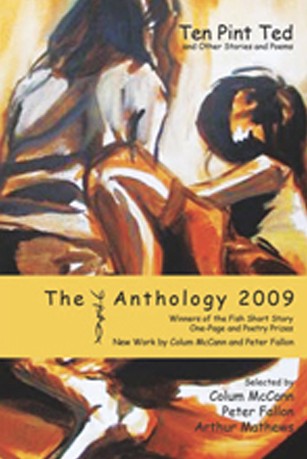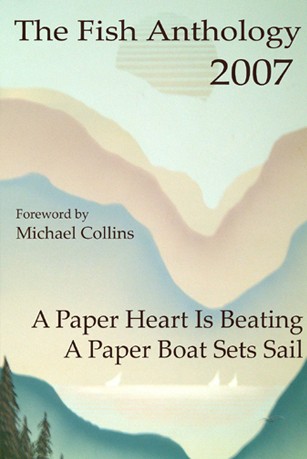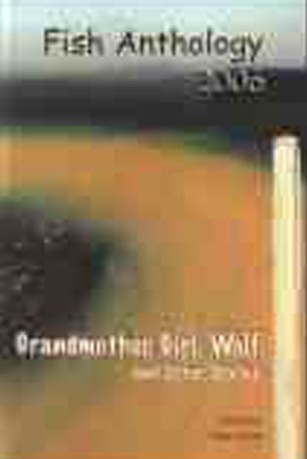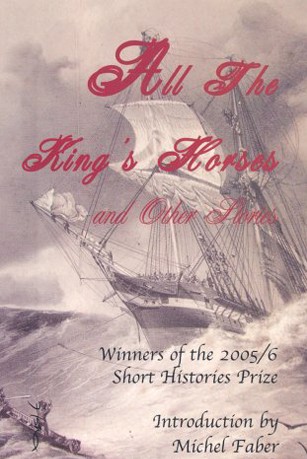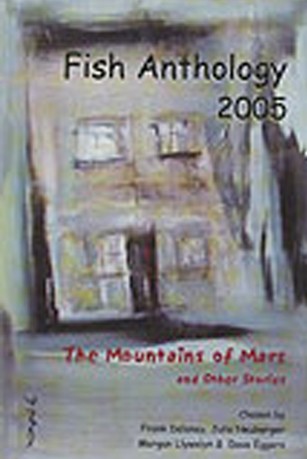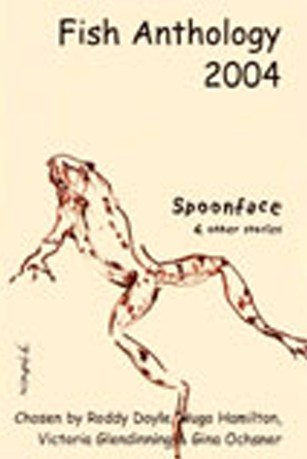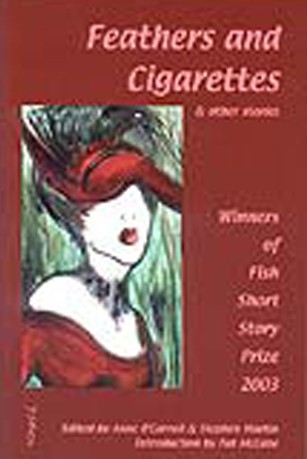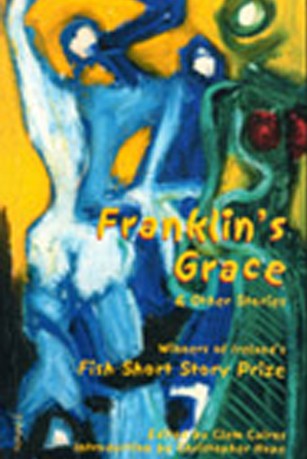About Fish Publishing
|
Fish Publishing Coomkeen Durrus Bantry Co Cork, P75 H704 Ireland |
Email: info@fishpublishing.com Web: You’re here!! |
Welcome to Fish Publishing – Publisher of over 600 emerging authors and poets since 1994 in the annual Fish Anthology.
 Fish Publishing is an independent publishing company based in the West of Ireland. It was started in 1994 by Clem Cairns and Jula Walton with the ambition to encourage and promote new writers. With Clem still at the helm, the original focus remains and many writers who have swum into Fish’s net have sprung from there into successful writing careers. Now Fish Publishing is an organization of many and it offers a variety of resourses for writers, from literary competitions to writing courses and editorial support.
Fish Publishing is an independent publishing company based in the West of Ireland. It was started in 1994 by Clem Cairns and Jula Walton with the ambition to encourage and promote new writers. With Clem still at the helm, the original focus remains and many writers who have swum into Fish’s net have sprung from there into successful writing careers. Now Fish Publishing is an organization of many and it offers a variety of resourses for writers, from literary competitions to writing courses and editorial support.
The annual Fish International Short Story Contest has become an established event on the literary calendar. We are delighted that for many years, Roddy Doyle and Colum McCann have been honorary patrons of the Fish Short Story Contest. Dermot Healy and Frank McCourt are past patrons.
Fish is an open door that’s inviting writers to walk through it. It has to be encouraged, celebrated, congratulated.
– RODDY DOYLE –
Fish is doing God’s own work. It’s an inspiration and an avenue to writers everywhere.
– FRANK McCOURT –
I hail anyone who enters the Fish Prize . . . It is difficult to create from dust. I know that the best stories are those that are still untold -so keep writing, keep creating, keep the faith.
– COLUM McCANN –
Fish Publishing run three other competitions:
Ten winners from each of of the competitions are published in the Fish Anthology, launched during the West Cork Literary Festival in Bantry, West Cork, Ireland.
Many acclaimed writers have generously given their time to act as judges for the Fish literary prizes, and we would like to take this opportunity to thank them all for the time, effort and continued support they have given to Fish. Past Judges.
Many authors published in the Fish Anthology have gone on to have flourishing writing careers. See Alumni Page.
Comments about writing, from a few of these authors, can be found on our Writing Tips page.
Fish Publishing offers a comprehensive Critique and Editorial Consultancy Service. Our editors are experienced in providing writers with constructive critical analysis. They have been working with Fish for many years, supportting writers at all stages of their work with one-to-one editing.
Writing Courses online have become a central part of Fish’s work. Editor, Mary-Jane Holmes, chief editor at Fish, has been the driving force behind the:
Short Story Course
Memoir Writing Course
Flash Fiction Course.
Fish also provide a:
Poetry Course with Adam Wyeth
Playwriting Course with Cressida Peever
Judging Process – Fish Writing Contests.
Read Essay on Fish Publishing by Ann-Marie Donohoe
Read Article on Fish Publishing by Rumjhum Biswas
Information about the Anthologies, published annually since 1994, can be found at Fish Books. To read stories and poems published in the Fish Anthologies, visit the Short Stories to Read Online.
Fish have published the following novels:
- Altergeist by Tim Booth
- Small City Blues # 1-57 by Martin Kelleher
- 12 Miles Out by Nick Wright
- The Woman Who Swallowed the Book of Kells by Ian Wild
Essay by Ann-Marie Donohoe
Fish Publishing – A Small Fish in a Big Pond?
The Publishing Industry could not exist without a literate society; in fact it is totally dependent upon one. In The Historical Development of Writing Jack Goody states “if language is inextricably associated with ‘culture’, it is writing that is linked with ‘civilisations’ with the culture of cities, with complex social formations”. (Goody, 1987) It is fair to say that from its advent the impact writing has made to human societies is its ability to shape and develop civilised cultures. The most predominant examples of this come from antiquity, i.e. the Minoans, Akkyadians, Greeks, and Romans. They all used the uniformity of their writing systems, be it the adaptation of cuneiform, Aramaic or the Greek or Latin Alphabet to develop their civilisations.
“Around 1500 printing conquered Europe. It was to reign supreme over the continent for four centuries” (Martin, 1994) Printing made an enormous impact on society, and a long lasting one. The development of Gutenberg’s Printing press was a catalyst for rapid changes that were still prevalent four hundred years later. The Gutenberg printing press also saw the development of the idea of reading for pleasure. No longer were books just manufactured, (as manuscripts had been) solely for the clergy. Reading moved into popular culture, especially in Spain during the sixteenth century where novel style works were enjoyed “it was there that at the beginning of the sixteenth century there was published a chivalric romance whose, origins are now obscure, but what was to be without question the most successful bestseller of its day, the Amadia di Gaula”. (Febvre & Martin, 1984) Undoubtedly, a book trade derived from the evolution of the printing press and reading for pleasure. Over the centuries, this import and export of books from country to country saw the transformation of the initial family run printing presses into the corporate publishing houses of today. The purpose of this essay is to focus upon the development of a small publishing house based in the West of Ireland, which swims against the corporate giants in the murky depths of Publishing’s oceans, and has, as its priority as a Publishing Press, the interests of new writers at heart.
Publishing, as outlined by John Feather in A History of British Publishing is the commercial activity of putting books into the public domain. This activity, in theoretical terms, can be likened to the Shannon-Weaver model of the communication chain. The Shannon-Weaver model consists firstly of the source, secondly the transmitter and thirdly the recipient. In publishing terms these can be simplified to the author, the publisher and the reader. (Feather, 2006)
Source → Transmitter → Recipient
Author→ Publisher → Reader
The Publishing industry itself and the market for books depends upon the “number of those able to read and who wish to do so,” making literacy fundamental for growth and survival. (Feather, 2006) The development of literacy essentially marked a shift in society. From the advent of writing society has progressed consistently due to consequences of information revolutions. From the initial development of literacy itself, furthermore came the birth of the printing press, and when reading became a leisure activity, the establishment of Publishing Houses ensued.
Like with a lot of industries, the corporate giants, .i.e. larger publishing house such as Harper Collins and Penguin, like to dominate the publishing one. The different sectors even seem to join forces in order to maximise profit i.e. the large supermarket chains such as Tesco and Sainsburys selling novels at rock bottom prices. It may be every authors dream to have a book published by a large publishing house, but if their books do not sell enough, or make enough money for the giant, the author can be dropped quickly, and may actually end up owing the publishing house money. The smaller publishing houses, such as Fish Publishing are dedicated to the author themselves and see them as more than just a money making machine.
Fish Publishing is so called as the founder, Clem Cairns, worked on a fishing trawler to make ends meet. Cairns own degree is in Philosophy, which he earned from the prestigious University, Trinity College Dublin. Although he does not have a background in literature, Cairns used to write in his spare time for pleasure, and has a knack for discovering quality new writers. Every July, the Cork based company launch their anthology at the annual West Cork Literary Festival. The Festival features some of the finest writers, playwrights, poets and musicians, from Ireland and abroad – living and dead. Workshops continue to be the centrepiece of the Festival, and in 2011 some of the guest speakers included Man Booker prize winner John Banville (The Sea, 2005) and actress and novelist Pauline McGlynn (famous for her role as Mrs. Doyle in Father Ted). A diverse range of authors are featured in the festival from all over the world, last year one the age spanned between fourteen years and another eighty two years. The festival is located in one of the scenically most breath-taking locations in Ireland and is usually attended by approximately one thousand people every year.
Like the larger publishing houses, Albatross and Penguin, Fish have a logo (a fish shaped one) on their anthologies, which they publish on an annual basis. The current logo was based by Dubliner designer, Shay Cummings, who thought the original logo was too staid, and lacked movement, energy and space. The logo was not initially done to mimic the larger houses; nevertheless it is effective for recognition and advertising purposes. The design of the fish is used because Cairns sees the press as “fishing for stories”, casting out the net with their competitions, hauling in the catch with the entrants, and so on. However, Fish Publishing often get mistaken for a born-again Christian outfit because they also use the symbol of the fish!
Fish Publishing was established in 1994. Cairns saw a gap in the Publishing Market as it was extremely difficult in the nineties to get published as a writer in Ireland. Regarding the funding of Fish Publishing, (like a lot of independent presses) the venture was initially self funded. Cairns borrowed €1,000 from the bank to cover prize money for a contest which he ran, now an annual contest with even more categories than when the press was set up originally. Later, Fish received a grant from the Arts Council in Ireland. The Arts Council is the national agency for funding, developing and promoting the arts in Ireland. Although the grant has ranged from €2,000 up to €9,000, it does not cover the prize money for the writing contests, just the cost of producing the Anthology. Since the initial loan from the bank, the prize money itself then is funded then by sales of the anthologies, the fee for Fish’s critique and editorial services, along with the entrance fee for the competitions, and also the fee for the short courses which Fish run for budding authors.
The annual competitions run by Fish include Flash Fiction, Short Fiction, Poetry, and a new one just opened this year (2012) the Short Writing Memoir Contest. In the first year or so of Fish’s existence, the competitions were open only to writers in Ireland. Because of various festivals and associated prizes that publish now, such as Stinging Fly and Southword, along with advances in desktop/self publishing it is now not as difficult to get published in Ireland as it was back in 1994. However writers in countries such as Iran, Pakistan and some African countries now face the adversities experienced by Irish writers in the nineties, so Fish offer the chance of publication worldwide. For writers outside of Europe, publication within the continent is a huge achievement. Fish provides writers the opportunity of exposure in European countries, and connect them to the rest of the world. The four annual writing contests run by Fish offer prize money. Although this is definitely an incentive for new writers, Cairns has discovered that publication and recognition are the main priorities for new writers. In theoretical terms, French Sociologist Pierre Bourdieu would claim that the culture and social capital the new authors gain is more valuable than the financial capital. It is, of course, essential for a new author to build up a good reputation as a writer, and gain publicity in their chosen field. As writers deal daily with criticism and rejection, recognition as a noteworthy author is priceless.
Having survived now for almost twenty years in the cut-throat industry, Fish Publishing boasts an alumnus of successful writers, such as Aine Greaney who has published two novels (Dance Lessons and The Big House) and a short story collection (The Sheep Breeders Dance). Celia Byrce was Writer in Residence for the MA at Northumbria University and Polly Clark is a now a published poet with Bloodaxe, whose collection is a Poetry Book Society Choice.
Since its humble beginnings, Fish has built up quite a reputation within the publishing industry, and many highly regarded writers such as Roddy Doyle, Frank McCourt and Collum McCann are patrons. Roddy Doyle ascertains, as quoted on the Fish Website, “Fish is an open door that’s inviting writers to walk through it.It has to be encouraged, celebrated, congratulated.” (Fish Publishing, 2012) The judges of the annual writing contests are commendable and recognise high quality writing. David Mitchell, author of the best selling Cloud Atlas, is the current (2011/2012) judge for the short story contest. Since the inception of Fish, Cairns has noticed that the overall standard of writing has crept up, making it harder to shortlist. Proficient writers want to be published by Fish.
So, what does a new writer need in order to become published and one of the exemplary alumni? Originality and humour are two qualities sought after by Fish, as is, stated by Cairns, “bloody good writing” and the ability to tell a “damn good yarn.” Every year the anthology publishes the winning short fiction and poetry, and the main criteria is quality. There are no themes set for the writing contests, the writer is free to choose the topic he or she would like to write about. Flash fiction (word limit of 300) was not so popular when Fish began publishing it, so it was unusual, and Fish opportunistically seized the gap in the market, attracting innovative new writers. The Flash Fiction writing contest has been running annually since 2004. Judging by winning entries such as “Countdown to Ecstasy” by Adrian Wistreich and “In the Car” by Bernadette M. Smyth, the standard of writing published by Fish definitely is, in my own opinion, phenomenal.
Also uncommon to other Publishing Houses, Fish will be publishing Short Memoirs in 2012. The Short Memoirs writing contest is a new venture, which encourages writers to challenge convention and gives them freedom to create or fabricate a slice of life. A short memoir differs from the traditional one as the word limit is approximately 2,000 to 4,000 words. Traditional memoirs are novel-length. The Fish Short Memoir Contest welcomes memoirs written in English, with a maximum of 4,000 words. (Fish, 2012). Aswell as producing the annual anthologies, Fish have also published a novel by Tim Booth (Altergiest), memoirs by Martin Kelleher, (Small City Blues Number 1 to 57) and a collection of short stories (The Woman who swallowed the Book of Kells) by Ian Wilde. They also offer a unique Critic and Editorial Consultancy Service which as well as helping to fund the company, provides writers with ongoing support and feedback for their long term projects. This critique service is reasonably priced and ranges from €30 to €47.
Another exclusive selling point of Fish Publishing is that they offer writers courses in both Flash Fiction and Memoir writing, both tutored by Mary Jane Holmes. These courses are competitive in price; both the Short Memoir and Flash Fiction Writing Course cost €245 each. Mary Jane is a graduate of Manchester University and has also studied at The University Autonoma in Barcelona. She has taught at Hull University and has also designed creative English curriculum programs in France and Germany. With years of editorial and writing experience, she offers writers critical feedback and guidance on their prose. The courses are divided into modules and for each module the writer must complete an assignment. Once the writer has fully accomplished the course, the final pieces are eligible for either the Flash Fiction writing contest or the Short Memoir prize. (Fish Publishing, 2012) Of course, those who are not on the course are eligible to enter the contest also.
Regarding Fish’s success, Clem has stated in an interview, “We try to be efficient and courteous to writers, and respect their endeavours. We love the work, so we are committed.” The Fish Publishing website clearly displays the commitment that the press has for new writers, with a section dedicated to Writing Tips. The website itself is comprehensive and easily accessible. As well as the writing tips including “How to Get Published”, there are links to other helpful websites, such as Writing Courses, retreats and other contests. One of the links posted on the website is for writers retreat Casa Anas in Southern Spain and a week’s stay there is second prize for the new Short Memoir Contest. Previous winning entries for the poetry, short story and flash fiction contests can also be found on the website, showing in my opinion, how high quality the writing is for publication.
Writers who have previously won the contests run by Fish Publishing have gone on to produce screen plays, stage plays and have contributed to both radio and television (BBC and RTE). There is no doubt that the judges for Fish Publishing have a keen eye to spot tremendous new talent and help launch the career of many ingenious writers. Due to Cairns innovative approach and opportunism which has cornered a much needed part of the market, Fish has managed to swim the stormy waters of the publishing industry and survive, growing from strength to strength.
Since the conception of Guntenburg’s Printing Press, the printing and publishing industry has spawned many great sharks and powerful fish. Publishing is unquestionably at a crossroads, on the cusp of great opportunities for both writers and publishing houses. This industry has vitality and spirit, the ability to find and develop new talent. It has the ability to reinvent itself, shrug off disasters, and to remain a formidable influence helping people learn about their past, understand their present, and ponder their future. (Greco, 2005) Literacy has indeed marked a shift in society, and the publishing houses, big and small have helped to introduce and integrate many influential books into our culture. In the last hundred years, information has advanced at an extremely rapid pace, and the World Wide Web is now accessible in almost every household in Western society. In the midst of all the technological advances, independent publishers’ creativity, enthusiasm and contribution to the vibrant publishing industry should be celebrated and encouraged. (Shine, 2012) With regards to the future of Fish, Cairns plans only to keep going and to grow. The addition of the Short Memoir Prize this year should attract numerous new talented creative writers. Fish Publishing would also like to see more entries from India, Africa and the Middle East, in order to give power to authors whose voice may not be heard in their own countries. Already, Fish offer two course online, and would like to expand this to two or three more; for poetry, novel and short story. Cairns wants success for his protégés, and would like writers who succeed with Fish to have the best possible springboard from which to leap. In the words of Colum McCann, “I hail anyone who enters the Fish Prize . . . It is difficult to create from dust.I know that the best stories are those that are still untold – so keep writing, keep creating, keep the faith.”
Bibliography
Febvre, L. & Martin, H.J. (1984)
The coming of the book, the impact of printing 1450 – 1800, London, Verso Books.
Fish Publishing (January 2012) Fish Publishing Online Writing Courses, Available from Fish Publishing writing courses (Accessed 14 January 2012)
Goody, J. The Interface between the written and the oral, Cambridge, Cambridge University Press.
Greco, A. (2005) The book publishing industry,[online] Available from: The book publishing industry (Accessed 10 January 2010)
Martin, H.J. (1994) The History and Power of Writing, Chicago, University Chicago Press.
Shine, B. (January 2012) An introduction to the IPG, Available from http://www.ipg.uk.com/ cgi-bin/scribe?showgroup=pg01 (Accessed 12 January 2012)
Appendix
Interview with Clem Cairns
1. What gap did you see in the Publishing Market which inspired you to set up Fish Publishing? What type of material do you publish that is unique?
The gap in the market at the time – 1994 – was that it was too difficult to get published as a new writer in Ireland. Writers were going to the UK and that was also difficult. The first year or two the competition was Ireland only. After that we went world-wide. Nowadays it may not be so hard to get published as a new writer in Ireland, but we are providing that opportunity for writers in many other countries – and we increasingly get entries from places like Iran, Pakistan, African countries too, where publication is either impossible altogether or just plain unlikely. Perhaps it’s unique that every year we publish an anthology of short fiction and poetry by writers from such a wide geographical spread. We have no criteria except quality. No themes set. When we started publishing Flash Fiction it was unusual. Now everyone is doing it. We have just started a Short Memoir Prize. Give it a few years and the usual suspects will follow suit.
2. The company has been running since 1994 – why do you think Fish Publishing is succeeding in the cut-throat business?
Hard work and a good idea that writers buy into. Writers still like to be published in a book, and we do what we can to make that a significant event and help them along – it’s designed to be a stepping stone to greater things. We have always been able to get judges of real quality for the competitions. We try to be efficient and courteous to writers, and respect their endeavours. We love the work, so we are committed.
3. I see that Fish Publishing run competitions and the winners have been from all over the world, and not just Ireland, what do you think attracts the writers worldwide to submitting their articles to Fish Publishing? It’s the achievement of being published in Europe for writers outside of it. It gives some exposure and connects them to the rest of the world, if that’s not too loose a statement. Fish authors often keep in touch/network and help each other out in various ways. The money prizes are an incentive too, but I know from talking to the writers that publication is foremost.
4. What do you look for as Publishers in new writers – what qualities,quirks?
Bloody good writing. A damn good yarn. Originality. Humour.
5. In the past (and obviously the present) during recessionary times budgets for the arts have been cut, however it has been noted that during times like this people become more attuned to their creative side…have you found this rings true in the current ecomonic climate? Has the quality of submissions to Fish improved somewhat during the current recession?
No. Over the years, though, the overall standard crept up, so it is harder to shortlist. My guess is that as Fish’s reputation got better so more proficient writers wanted to be published by us.
6. The Critique and Editorial Consultancy Services as well as the writing tips provided by Fish help to take the “scary” aspect out of submitting to a Publisher, do you find this service helps you to connect better with potential writers as well as generating an income?
Yes.
7. When you initially set up Fish Publishing, was it all self-funded?
Does the Irish Government provide you with any Arts Grants or the likes to assist with funding/to help support the Publishing House?
Initially it was self-funded. I worked on a fishing trawler to make ends meet, and borrowed £1,000 from the bank to cover the prize money for the competition. I can’t remember when we first got a grant from the Arts Council, but it was probably in time to publish the first book, and we have got one every year since. It’s gone from about €2,000 up to 8 or 9, and last year was €17,000. The Arts Council funding goes towards the cost of producing the Anthology.
8. Do you yourself have a background in literature or writing?
My degree is in Philosophy from TCD. No background in literature, but I used to write a fair bit. It all got destroyed in a fire at Fish offices in 2004 and I haven’t done much since, although I have been running a wrting group for the past eight years, which is a lot of fun.
9. The Fish logo which you use on the books…do you think it is effective for advertising purposes, for recognition or is it a way of mimicking the logos of the larger publishing houses ie Penguin?
The logo wasn’t as far as I know designed to mimic other publishers. Done by a Dublin designer called Shay Cunningham who dropped in to us in West Cork and told us our old logo was crap – too staid, no movement or energy or space around it, and he came up with the existing one. The main thing about it is we sometimes get mistaken for a Christian (born again) outfit because they use the symbol of the fish. Nothing could be further from the truth. We see it that we are fishing for stories. We cast out the net and haul in the catch, and so on. Called Fish because it started on a trawler, but I may have already told you that.
10. Why do you think it is now easier for Irish writers to get published, say rather than it was in 1994 when you set up Fish Publishing?
I think it is easier now to get published. There is Fish, Stinging Fly, Southword, and various Festival associated prizes that publish. The Irish Press and Tribune are gone with their new writing pages, and they are a loss, but there are more outlets in book form. With advances in desktop publishing it is easier too for writing groups etc to publish themselves.
11. What do you think about the future of Fish/what are your plans for the future?
For the future – to keep going and grow. We added a Short Memoir prize this year. We want more entries from India, Africa, the Middle East. We have two courses online and may add another two or three for poetry, novel and short story. We want writers who succeed with Fish to have the best possible springboard from which to leap.
Judging the Fish Prizes
Many people have asked how the Fish Prizes are judged, so here is a brief explanation of the process.
The stories and poems are read by the editorial staff at Fish. Many of the editors have been working with Fish since it´s inception in 1994. They are all experienced literary critics, conscientious and proud to be part of the process of creating a worthy anthology. They are also responsible for the excellent Critique Services Fish provides.
Our readers are all looking for good, literary writing, with a weather eye for anything that breaks the mould – Fish seeks to publish new and exciting work from new and exciting writers. All the entries are read carefully and are graded on a scale, A, B, C or D.
The D’s are those entries which are clearly not up to the mark for one reason or another. The C’s are those which are nearly there but fail to make the highest level because they fall down on one or other of the key attributes our readers are looking for (See Rejection and Criticism above.) This is not the end of the story for the C’s however. The list of C’s is carefully looked over by another member of our senior editorial staff to ensure that nothing has been rejected erroneously. If any reader is in doubt, they are encouraged to pass the story on to other readers for a second or third opinion. Any B+ material out there will probably be read several times before it is finally decided whether it is to be selected for the A list.
All the A’s becomes our Long List. Every story on the Long List is read by several members of the senior editorial staff. What they are looking for is the very best out of a bunch of material almost all of which is of publishable quality. What makes the difference? Well. if we could answer that question for you, there would be no mystery left in the art of writing.
After a lot of discussion, argument, even the odd fight, the short list is agreed. This usually consists of around thirty entries. The very best of that year’s offerings. These are then given to the judge, an acclaimed author or poet, who selects 10 for publication in the Fish Anthology. The Judges choose a first, second and third prize from their ten favorite pieces.


